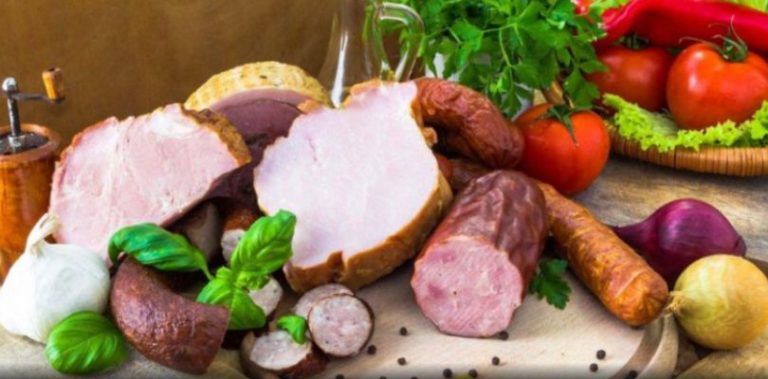Navigating Nutrition
When navigating life with colon cancer, paying close attention to what you eat and drink can play a crucial role in managing symptoms and supporting your overall health. In this article, we'll be looking at the worst foods and drinks for colon cancer. If you're looking for a solid treatment option, consider ZIRABEV™; a medication used in the treatment of cancer. It is a biosimilar to bevacizumab, which is a monoclonal antibody. ZIRABEV works by targeting and inhibiting the activity of vascular endothelial growth factor (VEGF), a protein that plays a key role in the formation of blood vessels that supply nutrients to tumors.
4 Drinks to Avoid Consuming with Colon Cancer
When dealing with colon cancer or any other form of cancer, it's important to prioritize your health and make informed choices about what you consume. Here are four types of drinks that you should consider avoiding or minimizing:
- Sugary beverages: Drinks like soda, sweetened juices and energy drinks are often high in added sugars, which can contribute to weight gain and potentially worsen cancer outcomes.
- Alcohol: Excessive alcohol consumption has been linked to an increased risk of several cancers, including colon cancer. It is advisable to limit or avoid alcohol during treatment and recovery.
- Highly caffeinated drinks: Beverages that contain high levels of caffeine, such as certain energy drinks or strong coffee, may cause digestive issues or aggravate existing symptoms related to colon cancer or its treatment. Consider opting for lower-caffeine or caffeine-free alternatives.
- Artificially sweetened drinks: Some studies have suggested a potential link between artificial sweeteners and an increased risk of certain cancers. While the evidence is not definitive, it may be wise to minimize consumption of artificially sweetened beverages as a precautionary measure.
Worst Foods and Drinks for Colon Cancer
As with most cancers, obesity, smoking and drinking too much alcohol will increase your risk of developing colon cancer. These are the worst foods and drinks:
1. Red Meat
Reducing red meat consumption to improve your health may sound like old news, but did you know the way you cook meat can also increase the risk for colon cancer? Any meat cooked too well is bad news for your health. When you are barbecuing, fat drippings that land on hot coals can release polycyclic aromatic hydrocarbons (PAHs), and some PAHs have been linked to colon cancer.
2. Processed Meat
Processed meats are another food to avoid. The more you eat meat preserved by curing, smoking, salting or adding preservatives like nitrates or nitrites, the higher your risk of developing colon cancer becomes.
3. Trans Fats and Saturated Fats
The dangers of trans and saturated fats have been in the news for years. Preventing colon cancer is another reason to steer clear of foods like cakes, cookies, fried foods, margarine, donuts, pastries and chips. Pro tip: look for hydrogenated oil on labels to weed out trans fats.
As for saturated fats, keep food like butter, egg yolks, fatty cuts of meat and whole milk dairy products to a minimum.
4. Sugar
Studies have shown that people who eat a lot of sugar increase their risk of developing colon cancer later on in life.
You can keep sugar at bay by knowing a food’s glycemic index (GI) and glycemic load (GL). The glycemic index tells you how much a certain food will increase your blood sugar level.
You may be thinking that counting calories and reading labels is enough work already. Still, an online calculator like one from the University of Sydney can make it easier to be sure you are eating healthy GI foods. For example, the GI score for white bread is 75, and the one for specialty grain bread is 53. So, you don’t have to give up bread completely. It’s as easy as reaching for a different shelf at the grocery store.
The glycemic load is a little more complicated. Glycemic load tells you how much of that carbohydrate is in a serving of a particular food.
What Should You Eat With Colon Cancer?
Appetite changes or weight loss might mean you need to eat protein-rich foods with more calories, like:
- Protein drinks (powdered protein supplements mixed with fruit, milk or yogurt).
- Milk.
- Dairy products.
- Eggs.
- Meat.
- Sauces or gravies.
- Legumes.
- Mono-saturated oils.
It's also suggested to eat many small, nutritious meals and drink fluids after you eat (not during). Eat and drink fortified foods and shakes when necessary. Diarrhea may be prevented by following the bland BRAT diet of bananas, rice, applesauce and toast.
Can you see why you need a dietician? Foods to avoid with colon cancer is not a straightforward topic. One side effect requires you to shun dairy, while another requires eating more. These are complicated choices and your healthcare professionals are there to help you make them.
ZIRABEV for Cancer Treatment
ZIRABEV is a medication used to treat cancer. It's like another drug called bevacizumab. ZIRABEV works by targeting a protein called VEGF, which helps tumors grow blood vessels. By blocking VEGF, ZIRABEV stops tumors from getting the nutrients they need to grow. This can slow down or shrink the tumors. Doctors often prescribe ZIRABEV for cancers like colorectal, lung, and kidney cancer. Since it's a biosimilar, ZIRABEV is similar to bevacizumab in how safe and effective it is, giving patients another option for cancer treatment.
Dietary Do's and Don'ts
Colon cancer is a disease that causes malignant tumors in the cells lining your colon. You may have heard it called colorectal cancer or cancer of the colon and rectum. That’s because your colon and rectum are made of the same tissue, and there is no clear line where your colon ends and your rectum begins. Anyone can get colon cancer, but it occurs more frequently with age. It’s the fourth most common cancer (excluding skin cancers) in the U.S., and the risk of developing colon cancer also increases when there’s a family history. One good thing to know about colon cancer is that it is one of the easiest to reduce your risk by watching your diet.
Whether you are adjusting your diet to keep your colon healthy or to stay as strong as possible during treatment, eating well doesn’t have to be hard. Your goal isn’t to change everything or swap your grocery store for a health food store. But taking the time to read food labels, reduce your sugar intake and swap your steak for chicken or fish a few nights a week is worth the trouble. Your colon will thank you.
To ensure you're good, a colonoscopy may be something to look into. Here's everything you need to know.

